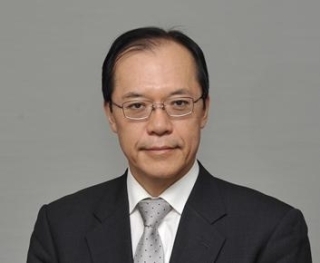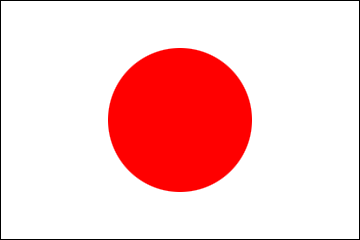Ambassador Kikuta's Message: 2023 New Year Greetings
2023/1/1

1. At the outset
Happy New Year to you all for the year 2023 A.D. and the 5th year of the Reiwa Era (in Japan).
In my New Year's greetings of last year, I mentioned that looking back on the year 2021, we were faced with the triple burden of political instability, the COVID-19 pandemic, and natural disasters.
Compared to this, the year 2022 can be summarized as a year in which COVID-19 somewhat subsided in Nepal and normal economic activities and human exchanges began to resume.
In terms of Japan-Nepal relations, 2022 was the year of the 120th anniversary of international student exchange between Japan and Nepal.
2. The Year 2022
Last year, we fortunately could hold several events, which we had to refrain from in 2020 and 2021 due to the outbreak of the Covid-19 pandemic. These events included the Embassy’s cultural and educational programs and the Japanese Association’s gatherings. I highly appreciate the efforts of all those who endured this difficult time. Travel from Nepal to Japan has also resumed, which has led to an increased interest in Nepali human resources among Japanese companies.
Since my arrival in Nepal, the majority of my activities were obliged to be done by online under the pandemic situation. Now I am finally able to have face-to-face discussions with Nepali government officials and diplomatic missions, and participate in various opportunities related to Japan-Nepal relations. I have come to realize again the importance of actual meetings and discussions in-person.
As for the 120th anniversary of international student exchanges, I myself was deeply moved by the long and close relationship between the two countries. I heard many heartwarming episodes and stories from Nepali organizations that embody friendship with Japan at various occasions, including the commemorative event in May. I would like to take this opportunity to express my heartfelt gratitude to all those who cooperated with, and participated in, our 120th anniversary events.
Last year was also an election year in Nepal. The local elections in May and the elections of the House of Representatives and Provincial Assembly in November were held democratically and peacefully in general, which showed both Nepali people and other countries in the world the progress of democracy in Nepal. On the November elections, a delegation of election observers from Japan led by H.E. Mr. TAKEI Shunsuke, State Minister for Foreign Affairs of Japan, visited Nepal. H.E. State Minister was of a much higher diplomatic level than those who came from other countries, and his visit was highly appreciated by the Nepali government.
3. The Year 2023
It may be too optimistic to say that this year will be a year of trouble-free improvement. There will continue to be challenges and difficulties. While COVID-19 has somewhat subsided for now in Nepal, there is still some concern about surges in Japan, Korea, and China, where travelling between Nepal and these countries has resumed.
The election year will be completed with the presidential election predicted in February this year. We need, however, to continue to carefully monitor the effect of the election results to the new political system, including the new government under the leadership of the new Prime Minister and the power balance between existing forces and emerging forces, which was one of the features of the election last year. There remains important issues for Nepal to further address the improvement of good governance and the implementation of policies and regulations on the ground.
Natural disasters will never cease to exist; rather their impact is becoming increasingly severer across the globe. Almost all of the 17 Sustainable Development Goals (SDGs), with the exception of perhaps SDG 14 (marine resources), will require continued efforts in Nepal. In particular, climate change, coupled with environmental and sanitation issues, could have serious consequences for Nepal, and SDG 13 (climate change) is a major challenge that the international community as a whole must tackle.
On the other hand, as I mentioned in my New Year greetings last year, I recognize the importance of taking a long view of Nepal's efforts to make progress. Those who knew Nepal 10 years ago are unanimous in saying that the country's infrastructure, such as electricity, and the information and communication environment have changed dramatically.
From the collapse of the monarchy, through a period of upheaval and the earthquake, to the election of a government based on the will of the people under a new constitution, Nepal has undergone a structural socio-economic transformation in a few decades that would normally take a hundred years. Now, this multi-ethnic country is seeking to move forward under democracy. I believe that the international community should support this and I would like to express my respect to all those who are making efforts in various initiatives in this country.
4. Wishing for a Wonderful Year
This year, for the first time in three years, we are planning to hold the Emperor's Birthday Reception at the Ambassador's residence.
This year is the year of “癸卯“ (mizunoto-u) in the sexagenary cycle*. “癸” (mizunoto) is the last of the 10 elements and “卯” (u) represents a rabbit. In other words, “癸卯”, is the state of being ready to nurture the next life, and it is said to be a year of harvesting and striding forward. I hope that this year will be a good one for all of you, a year in which the harsh winter is over and spring arrives with budding hopes.
* The sexagenary cycle, or ganzhi, is a 60-year calendar term composed of a combination of 10 elements from natural philosophy and 12 animals, which originated in ancient China. “癸”(mizunoto) is the last of the ten elements, signifying that life has come full circle and is ready for the next new life.
Happy New Year to you all for the year 2023 A.D. and the 5th year of the Reiwa Era (in Japan).
In my New Year's greetings of last year, I mentioned that looking back on the year 2021, we were faced with the triple burden of political instability, the COVID-19 pandemic, and natural disasters.
Compared to this, the year 2022 can be summarized as a year in which COVID-19 somewhat subsided in Nepal and normal economic activities and human exchanges began to resume.
In terms of Japan-Nepal relations, 2022 was the year of the 120th anniversary of international student exchange between Japan and Nepal.
2. The Year 2022
Last year, we fortunately could hold several events, which we had to refrain from in 2020 and 2021 due to the outbreak of the Covid-19 pandemic. These events included the Embassy’s cultural and educational programs and the Japanese Association’s gatherings. I highly appreciate the efforts of all those who endured this difficult time. Travel from Nepal to Japan has also resumed, which has led to an increased interest in Nepali human resources among Japanese companies.
Since my arrival in Nepal, the majority of my activities were obliged to be done by online under the pandemic situation. Now I am finally able to have face-to-face discussions with Nepali government officials and diplomatic missions, and participate in various opportunities related to Japan-Nepal relations. I have come to realize again the importance of actual meetings and discussions in-person.
As for the 120th anniversary of international student exchanges, I myself was deeply moved by the long and close relationship between the two countries. I heard many heartwarming episodes and stories from Nepali organizations that embody friendship with Japan at various occasions, including the commemorative event in May. I would like to take this opportunity to express my heartfelt gratitude to all those who cooperated with, and participated in, our 120th anniversary events.
Last year was also an election year in Nepal. The local elections in May and the elections of the House of Representatives and Provincial Assembly in November were held democratically and peacefully in general, which showed both Nepali people and other countries in the world the progress of democracy in Nepal. On the November elections, a delegation of election observers from Japan led by H.E. Mr. TAKEI Shunsuke, State Minister for Foreign Affairs of Japan, visited Nepal. H.E. State Minister was of a much higher diplomatic level than those who came from other countries, and his visit was highly appreciated by the Nepali government.
3. The Year 2023
It may be too optimistic to say that this year will be a year of trouble-free improvement. There will continue to be challenges and difficulties. While COVID-19 has somewhat subsided for now in Nepal, there is still some concern about surges in Japan, Korea, and China, where travelling between Nepal and these countries has resumed.
The election year will be completed with the presidential election predicted in February this year. We need, however, to continue to carefully monitor the effect of the election results to the new political system, including the new government under the leadership of the new Prime Minister and the power balance between existing forces and emerging forces, which was one of the features of the election last year. There remains important issues for Nepal to further address the improvement of good governance and the implementation of policies and regulations on the ground.
Natural disasters will never cease to exist; rather their impact is becoming increasingly severer across the globe. Almost all of the 17 Sustainable Development Goals (SDGs), with the exception of perhaps SDG 14 (marine resources), will require continued efforts in Nepal. In particular, climate change, coupled with environmental and sanitation issues, could have serious consequences for Nepal, and SDG 13 (climate change) is a major challenge that the international community as a whole must tackle.
On the other hand, as I mentioned in my New Year greetings last year, I recognize the importance of taking a long view of Nepal's efforts to make progress. Those who knew Nepal 10 years ago are unanimous in saying that the country's infrastructure, such as electricity, and the information and communication environment have changed dramatically.
From the collapse of the monarchy, through a period of upheaval and the earthquake, to the election of a government based on the will of the people under a new constitution, Nepal has undergone a structural socio-economic transformation in a few decades that would normally take a hundred years. Now, this multi-ethnic country is seeking to move forward under democracy. I believe that the international community should support this and I would like to express my respect to all those who are making efforts in various initiatives in this country.
4. Wishing for a Wonderful Year
This year, for the first time in three years, we are planning to hold the Emperor's Birthday Reception at the Ambassador's residence.
This year is the year of “癸卯“ (mizunoto-u) in the sexagenary cycle*. “癸” (mizunoto) is the last of the 10 elements and “卯” (u) represents a rabbit. In other words, “癸卯”, is the state of being ready to nurture the next life, and it is said to be a year of harvesting and striding forward. I hope that this year will be a good one for all of you, a year in which the harsh winter is over and spring arrives with budding hopes.
* The sexagenary cycle, or ganzhi, is a 60-year calendar term composed of a combination of 10 elements from natural philosophy and 12 animals, which originated in ancient China. “癸”(mizunoto) is the last of the ten elements, signifying that life has come full circle and is ready for the next new life.
January 1, 2023
Ambassador Extraordinary and Plenipotentiary of Japan
KIKUTA Yutaka
Message Archives
Ambassador Extraordinary and Plenipotentiary of Japan
KIKUTA Yutaka
Message Archives
